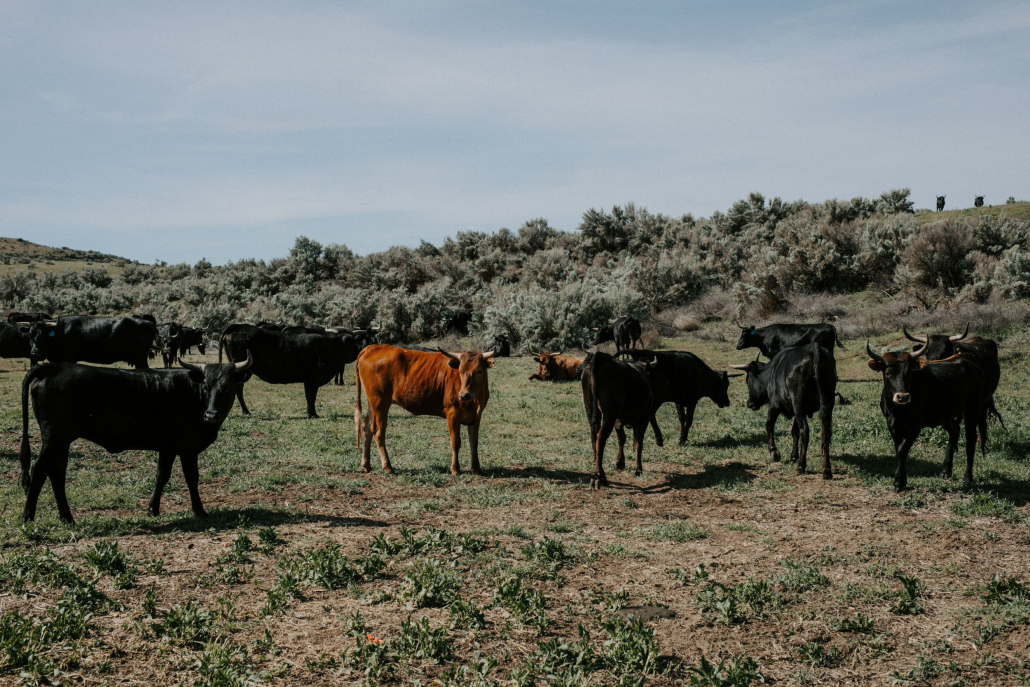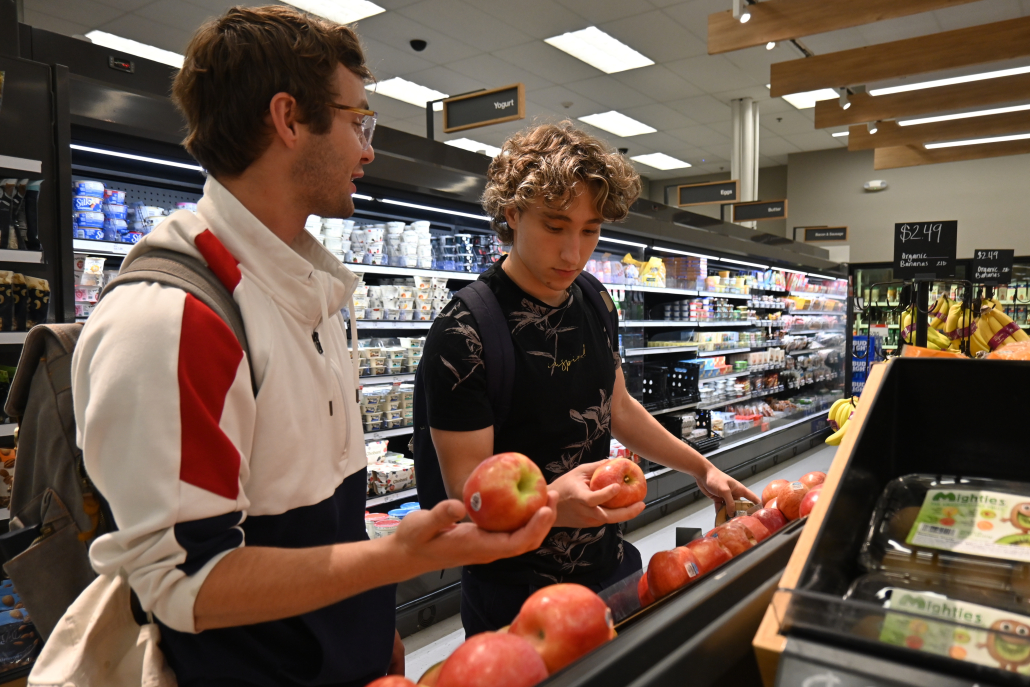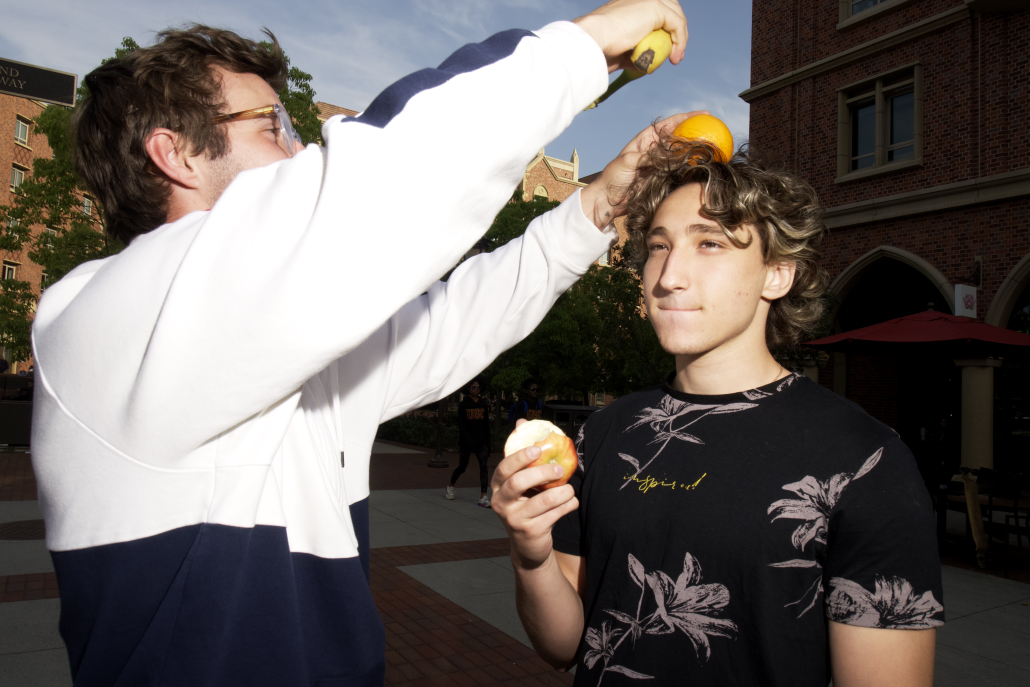Holistic cattle farming, environmental boons: Students research regenerative agriculture

When TJ Mercer met Joshua Jacobs in an Innovation in Engineering and Design for Global Crises class, Mercer told Jacobs to watch a documentary on regenerative agriculture called “Kiss the Ground” (2020). It ended up changing both of their lives.
“[The documentary] sort of opened me up to a whole new world of this amazing solution to a problem I didn’t even know existed,” said Jacobs, a junior majoring in chemical engineering.
Now, the two are collaborating on a research project to prove that holistically-raised food yields more nutritional benefits than traditionally-produced food while also benefiting the environment.
“Our topsoil is degrading at an unprecedented rate because of the last 100 years of agriculture mismanagement,” Jacobs said, citing practices like “intensive monocropping” and fertilizer use that harm plants, animals and the surrounding ecosystem.
The project focuses on holistically-raised beef. Cows are traditionally raised in cramped feedlots, which both prevents grass from growing effectively and is detrimental to cow health, said Mercer, a junior majoring in industrial and systems engineering.
Instead, he and Jacobs are researching the benefits of holistically-raised, grass-fed cows.
“What happens with a lot of grass fed [beef], is they cut the grass in the field, or technically corn stalks, and they just bring that to the feedlot,” Mercer said. “But what’s been really interesting for us and the research … is that when you actually put [the cows] in a pasture setting, and they get to eat fresh things that are still alive, it’s way healthier.”
Eating fresh, living grass allows cows to benefit from antioxidants, vitamins and good fats before the grass is cut and begins to lose its nutritional content.
In addition to ensuring cows get living grass to eat, the project researches how cow grazing affects the grass and soil health when the cows are migrated around different areas of a pasture, instead of being allowed to feed constantly on one spot — a rotational grazing system.
“It’s using the cows as a tool to specifically graze concentrated areas of land until it’s been grazed a certain amount and then move the entire herd to another part,” Jacobs said. “The point is to mimic how they would actually have herded like [in] a lot of these grasslands.”
Ecosystems currently face problems with cow grazing that have nothing to do with the cows, Mercer said, citing the wildebeest in the Serengeti as an example of a thriving beast and pasture relationship.
“They had this great system going and we [built] big cities and we destroyed all these migration patterns,” Mercer said.

Instead, Mercer and Jacobs want to use holistic cattle grazing to reestablish the mutually beneficial feedback cycles between cows and the environment. They are doing so with the help of a local ranch, Rising M Cattle Co., which puts holistic cattle raising theories into practice.
“We’re building grasslands with the cattle,” said Josephine Gwilliam, a rancher on the farm, likening the process to a “dance with nature.”
Rising M Cattle Co. just received its USDA certification, which will allow it to begin directly selling cuts of beef to consumers and restaurants online. The company also obtained a grant that will allow it to sell beef directly to schools at a discounted price.
“The goal here isn’t so much to expand, but to inspire and encourage people to eat locally,” Gwilliam said.
Mercer is equally passionate about educating people about their beef intake. He believes the solution starts with increasing USDA certification accessibility for local farms, like Rising M Cattle Co., allowing them to sell directly to consumers who can buy locally.
“It’s a lot of money to even build a slaughterhouse that’s up to USDA standards. And then you have to pay the salary for a USDA agent,” Mercer said.
Many small, local farms simply don’t have the funds to meet USDA standards for selling beef directly to consumers, trapping them in a vicious cycle that prevents them from competing with large meat distributors. Jacobs emphasized their efforts to use their research to change these standards.
“The way the laws are set up, it’s not really feasible to universalize a lot of these [holistic] practices in a way that makes economical sense,” Jacobs said. “We’re trying to tap into a movement that’s already happening … The major changes that have to happen is a societal shift that eventually goes into the policy.”

Those policies would hopefully make it easier for farms to implement the planning and work required to practice holistic management, Jacobs said.
“It’s much more involved, but it just takes a little more extra effort and thought, and then you can actually have a system that can produce food, make you money, and not fuck up the environment,” Jacobs said.
For now, Mercer and Jacobs hope to inspire others to educate themselves in little ways.
“It’s not reasonable to expect anyone to do anything above and beyond. People are living their lives; they’re busy. But this is how movements happen,” Jacobs said.
Mercer will spend the summer working with Gwilliam and its small team of ranchers at Rising M Cattle Co. The ranchers currently have their hands full with a host of newborn calves, and Gwilliam looks forward to working with Mercer.
“[Mercer] is really good at getting the science behind things,” Gwilliam said. “He’s always planting seeds, whether it’s physically, like he’s planting grass seeds, or he’s planting ideas.”
In the meantime, both Mercer and Jacobs will continue to encourage others to take stock of their place in the environment.
“Every time you eat, everything you do … something had to die for you,” Jacobs said. “And that’s not a bad thing. But you can take that knowledge and incorporate that into a personal lifestyle … understand where you’re interacting with the environment. There’s always ways to reduce your impact.”

